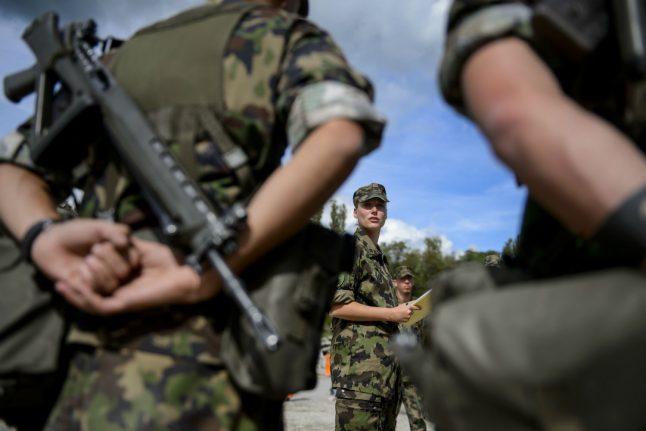While other European countries have imposed bans and reductions in recent years, figures from January to end September 2019 show a 60 percent increase in Swiss weapons exports on the previous year.
The total year-to-date arms exports are CHF496 million, an increase on the same figure in October last year which was CHF299 million.
Already after just nine months, Swiss arms exports are higher than the total amount in 2015, 2016 or 2017.
Swiss newspaper Le Temps reports that the figures were “released discreetly” by the State Secretariat for Economic Affairs (SECO) as an update, with the usual year-ending figures released by the agency in February.
Of concern to critics has been many of the names on the list of recipients. Saudi Arabia, Turkey and Kuwait are some of the importing countries engaged in controversial military activity or who possess questionable human rights records.
The topic of weapons exports has been an increasingly fraught one in recent years, with public criticism growing across several European countries.
France and Germany both indicated this week that they would halt arms sales to Turkey after its invasion of Syria.
Denmark remains the largest importer of Swiss arms, purchasing CHF107 million worth per year, with Germany (CHF84 million), Bangladesh (CHF54 million) and Romania (CHF34 million) next on the list.
The United States, the world’s largest arms exporter, was fifth on the list, with imports of 27 million so far in 2019.
p.p1 {margin: 0.0px 0.0px 0.0px 0.0px; font: 12.0px Helvetica}
p.p2 {margin: 0.0px 0.0px 0.0px 0.0px; font: 12.0px Helvetica; min-height: 14.0px}
p.p3 {margin: 0.0px 0.0px 0.0px 0.0px; line-height: 14.0px; font: 12.0px Times; color: #0000e9; -webkit-text-stroke: #0000e9}
span.s1 {text-decoration: underline ; font-kerning: none}



 Please whitelist us to continue reading.
Please whitelist us to continue reading.
Member comments